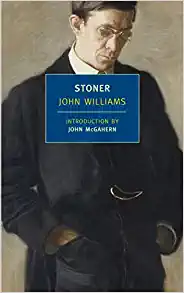Edith Hope is a romance writer who writes under another name -- she's accomplished, but to be honest, she writes about feelings and events that she's never sure she'll ever have, or at least have forever. She's withdrawn, and doesn't fit with her "friends."
Edith is sent away from "civilized" society in London to a quaint and quiet hotel in Switzerland following a scandal that it has been deemed should not occur amongst polite and learned men and women. While there, she encounters a sad variety of characters that initially seem almost so uninteresting, that they are interesting. Eventually, you are drawn into each one, into their nuances, their sad or internally destructive personalities. While one character, Mrs. Pusey initially impresses upon Edith that she is kind and lovely, it soon becomes evident that she's really just lacking in the same things that most of the hotel guests are without as well -- after all, why are they all sequestered in this hotel, away from family and friends, during a quiet time of season? It seemed to be that they all were suffering in some way.
Do not expect a flurry of events in the winner of the Man Booker Prize of 1984. Expect instead a quiet discussion, a studied review of a writer's perspective of those she meets and interacts with, amidst the background of an incredible hotel. There is not a hurry from one thing to another. It is a slow exercise of evaluation and word usage to describe each scene, moment, person. Could it be considered tedious and boring to some? Perhaps. Could it also be viewed as deceptively pleasing, slowly building the undercurrent of anticipation for something, something brilliant and cunning to breach the water line and unfold its secret? Yes.
At times, it was a bit humorous, but I found it to be an overall sad book, about people who were sad and who either were forced to be in exile by others, or simply had nowhere else that they could go. It's an insightful and thoughtful novel on love, loss, and regret. Although I wouldn't recommend it for everyone, I would say that if you like a quiet novel that delivers an introspective view on one's own life, then this sad little beauty is a book for you.
Every word is quotable in this beautiful and very short book, but this one I found delightful:
He was a man of few words, but those few words were judiciously selected, weighed for quality, and delivered with expertise. Edith, used to the ruminative monologues that most people consider to be adequate for the purposes of rational discourse, used, moreover, to concocting the cunning and even learned periods which the characters in her books so spontaneously uttered, leaned back in her chair and smiled. The sensation of being entertained by words was one which she encountered all too rarely. People expect writers to entertain them, she reflected. They consider that writers should be gratified simply by performing their task to the audience's satisfaction. Like sycophants at court in the Middle Ages, dwarves, jongleurs. And what about us? Nobody thinks about entertaining us.I look forward to reading more Anita Brookner novels. Particularly when I learned from Thomas at My Porch that Ms. Brookner is now in her eighties and has written a book a year since her first published fiction novel in her early fifties.
Other fabulous book bloggers said this:
Carol's Notebook
Vintage Reads
Savidge Reads
Happy Reading,
Coffee and a Book Chick



